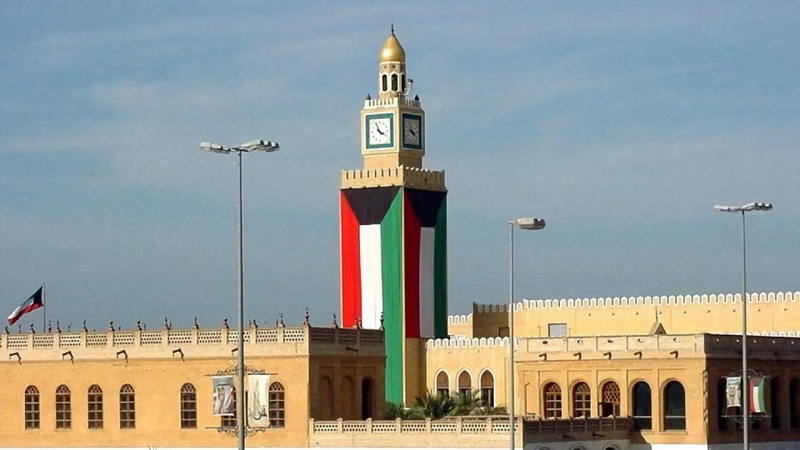
Kuwait"s vibrant culture and strong economy attract global trade. "
The major religion in Kuwait is Islam, and it plays a significant role in shaping the country's cultural, social, and legal framework. Islamic principles and values influence various aspects of Kuwaiti society, including its economic practices. The official currency of Kuwait is the Kuwaiti Dinar (KWD). The currency is issued and regulated by the Central Bank of Kuwait. The Kuwaiti Dinar is one of the highest-valued currencies in the world, and its value is tied to the country's economic stability and oil industry.
This is most of the citizens of Kuwait Islam. There are no official statistics on followers of Islamic religions in Kuwait, but it is estimated that 70% of Kuwaiti citizens are Sunni and 30% Shiite. If you have noticed, the Arabs prefer to wear clothes that completely cover their arms and legs, and their wives often cover their faces with veils, but in Kuwait, due to a large number of immigrants, there is a special style of clothing for the people this country. Kuwait is very suitable for anthropological researchers interested in learning about the culture of nations, if you are one of these people, do not miss a trip to Kuwait.
Kuwait has a prosperous economy fueled by its vast oil reserves. The oil sector plays a dominant role in the country's economy, accounting for a significant portion of government revenue and export earnings. The government has implemented various economic diversification plans to reduce reliance on oil and promote non-oil sectors such as finance, real estate, construction, and services. Islam emphasizes the importance of charitable giving and social welfare. In Kuwait, zakat (a form of alms-giving) is an integral part of the Islamic faith, and many Kuwaiti Muslims contribute a portion of their wealth to charitable causes. These funds are used to support various initiatives, including providing aid to the less fortunate, building mosques, and funding educational and healthcare projects.
The Kuwaiti currency is the dinar, the Kuwaiti dinar, like other currencies of oil-exporting countries, is directly dependent on the dollar. The Kuwaiti Dinar is freely convertible and its exchange rate is announced daily. Kuwait is the fifth richest country in terms of oil reserves and has so much capital that it has been able to cope well with the expenses and expenses of immigrants. Although Kuwait is in a good economic situation, it can still be said that it is completely dependent on its oil exports and about 85% of its income comes from this way. These issues have made gas prices cheaper than water in Kuwait.
Following the 2014 rout in oil prices, GCC economies have been struggling to adapt to the new oil reality. GCC countries experienced a direct hit on their fiscal balances as government expenditure had not been adequately controlled following years of abundant spend. With future deficits looming, Kuwait has followed the regional trend of pursuing economic and fiscal reform programs. These programs are comprised of multiple initiatives that seek to support economic diversification, strengthen private sector contribution to the economy and help maintain the deficit under control. The country's economy is largely based on oil and fossil fuels. However, the share of the tourism sector in the Kuwaiti economy cannot be ignored. Kuwait has been a destination for many Iranian and foreign tourists since ancient times.
This trend has continued so far with an almost positive slope. Kuwait's agriculture accounts for a very small share of its economy. In many cases, agriculture accounts for less than one percent of GDP. This has made the Persian Gulf country one of the main importers of food, especially from the United States. Stability and tranquility are the hallmarks of Kuwait's economy. This stability has led many economic actors around the world to choose Kuwait as their center of activity. The table below provides relevant information on the state of the Kuwaiti economy based on data from international organizations. The above information shows that Kuwait's economy is in very good condition and economic actors can safely do business with this country. This information also helps us to have a good perspective on the economic situation of this country on the Persian Gulf.
Kuwait, like many other Muslim-majority countries, has a strong presence of Islamic finance. Islamic finance adheres to Sharia principles, which prohibit the charging or paying of interest (riba) and promote ethical financial practices. Kuwait's Islamic banks and financial institutions offer a range of Sharia-compliant products and services, such as Islamic banking, Islamic bonds (sukuk), and Islamic insurance (takaful). Kuwait is home to numerous mosques and Islamic landmarks of historical and cultural significance. As a result, religious tourism plays a role in the country's economy. Visitors from around the world, particularly Muslims, travel to Kuwait to visit religious sites, attend religious events, and participate in spiritual activities.
-
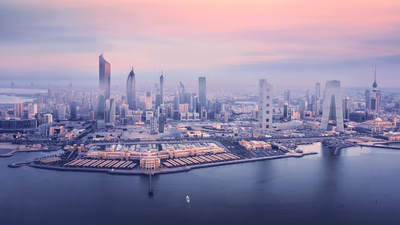
Kuwait"s trade landscape is heavily dominated by petroleum exports, which account for approximately 92% of its total exports. The primary markets for these oil exports are Asian countries, notably China and India. In addition to oil, Kuwait also exports chemicals, fertilizers, and plastics. The country benefits from its membership in the Gulf Cooperation Council (GCC), which fosters economic integration and trade cooperation among member states. Kuwait has established free trade zones, such as the Shuwaikh Free Trade Zone, to attract foreign investment and streamline customs processes. Despite a strong export economy, Kuwait relies on imports for many goods, including machinery, food products, and medical equipment. Major import partners include the United States, China, Germany, and India. Recent data indicates a notable increase in Iranian goods exported to Kuwait in 2018, highlighting shifts in trade dynamics within the region. Overall, while oil remains the cornerstone of Kuwait"s economy, the country is actively engaging in diversifying its trade relationships and enhancing its import capabilities.
-
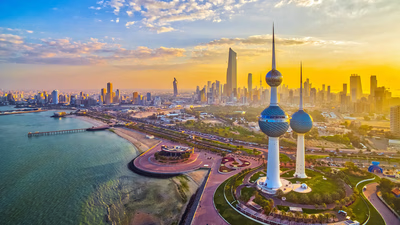
Kuwait, located in the northeastern Arabian Peninsula, is bordered by Iraq and Saudi Arabia. With a population of approximately 4. 3 million, it features a mix of Kuwaiti citizens and expatriates. The capital, Kuwait City, serves as the political and economic hub. While not a major tourist destination, Kuwait offers attractions like the Kuwait Towers and Grand Mosque. The country has a strong economic presence in the region due to its strategic location and access to international waters. It is known for its high-value currency, the Kuwaiti Dinar (KWD), and well-developed infrastructure including roads, airports, and seaports. Kuwait"s economy is heavily reliant on oil exports but is diversifying into finance, real estate, and trade sectors.
The cultural landscape is influenced by Islamic traditions and Arab customs, with a significant expatriate community contributing to its demographic diversity. Understanding Kuwait"s market dynamics can benefit businesses looking to engage in import-export activities.
-

Kuwait"s economy is heavily influenced by Islam, which shapes its cultural and legal frameworks. The Kuwaiti Dinar (KWD) is the official currency, known for its high value linked to the oil sector. Approximately 70% of the population are Sunni Muslims, with a significant emphasis on charitable giving through zakat. The economy relies predominantly on oil exports, accounting for about 85% of government revenue. Despite this dependency, Kuwait is pursuing economic diversification to reduce reliance on oil and enhance sectors like finance and tourism. The country has implemented fiscal reforms in response to fluctuating oil prices, aiming to stabilize its economy. Agriculture plays a minimal role in GDP, making Kuwait a major food importer. The stability of Kuwait"s economy attracts global business actors, fostering a favorable environment for trade and investment.
Additionally, Islamic finance is prominent in Kuwait, offering Sharia-compliant financial products that align with religious principles. Religious tourism also contributes to the economy as visitors come to explore its historical Islamic sites.
-
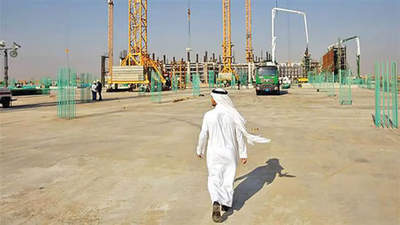
Kuwait"s economy is heavily reliant on crude oil exports, which constitute 90% of its GDP and 75% of government revenue. The aftermath of the Gulf War in 1990 severely impacted its economic structure, leading to significant foreign investment efforts to revitalize the economy. Key exports to Kuwait include mineral products like gypsum and cement, iron and steel, live animals, food products, vegetables, fish, fruits, and building materials. The country has a relatively high per capita income due to its small population and substantial GDP. Despite economic challenges post-war, Kuwait has maintained a low inflation rate and a diverse import market for food and construction materials. The government has sought advice from international financial institutions to implement economic reforms focusing on privatization and tax increases. Kuwait"s strategic location enhances its role as a trade hub in the region, with major trading partners including the US, Japan, South Korea, and several European nations.
-
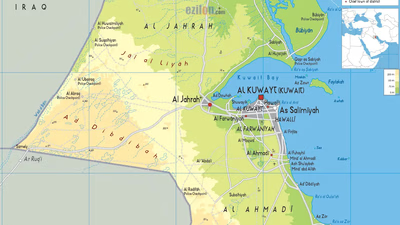
Kuwait"s ports play a crucial role in its trade landscape, with the Port of Shuwaikh being the largest and busiest, handling a variety of commercial cargo. The Port of Shuaiba follows as the second-largest, focusing on bulk cargo such as petroleum products and chemicals. Bubiyan Port, currently under development, aims to become a significant transshipment hub with advanced facilities. Al-Ahmadi Port is dedicated to oil exports, while other ports like Al-Zour and Doha serve specific functions in the oil and light goods sectors. The strategic location of these ports enhances Kuwait"s attractiveness for global traders. Import regulations require licenses from the Ministry of Commerce and Industry, ensuring that only registered importers can operate within the country. This regulatory framework supports a stable trade environment, fostering connections between local exporters and international markets.
-
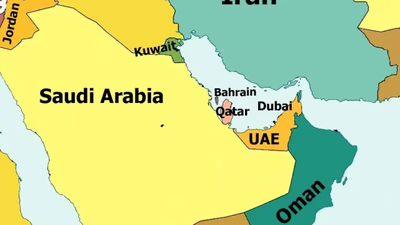
Kuwait, located in West Asia, shares borders with Saudi Arabia and Iraq, and has a coastline along the Persian Gulf. Despite its small geographical size of over 17,000 square kilometers, Kuwait has a rich history and complex identity. The country was founded by Sheikh Barak ibn Gharir al-Hamid in the early 18th century and has evolved into a significant player in regional trade. Approximately 60% of its population are Arabs, with a notable Asian demographic as well. The official language is Arabic, while English is widely spoken due to historical influences. Kuwait"s climate is predominantly hot and dry, necessitating substantial imports of food and water. The nation has made strides in improving its agricultural practices through greenhouses and other innovations. Politically, Kuwait operates as a sheikhdom with a parliamentary system that allows for greater openness compared to some neighboring countries.
Since gaining independence in 1961, it has maintained stability and fostered international relations despite historical territorial disputes with Iraq. Today, Kuwait stands as one of the safest countries in the region, making it an attractive hub for trade and business networking. "






